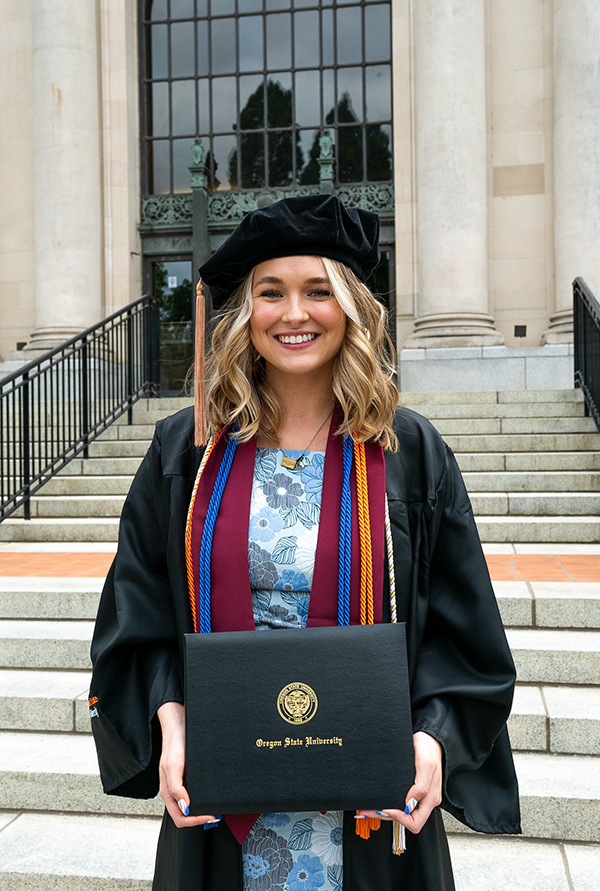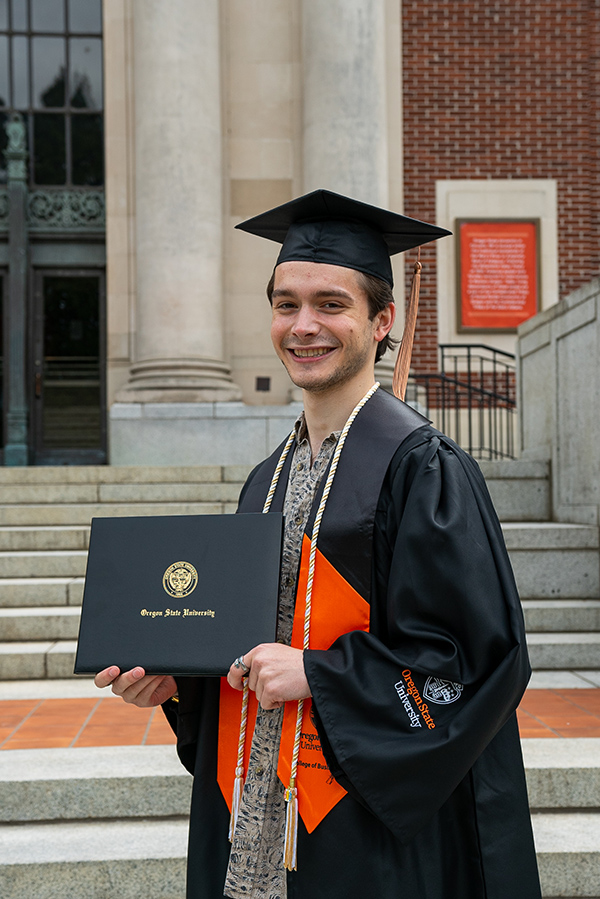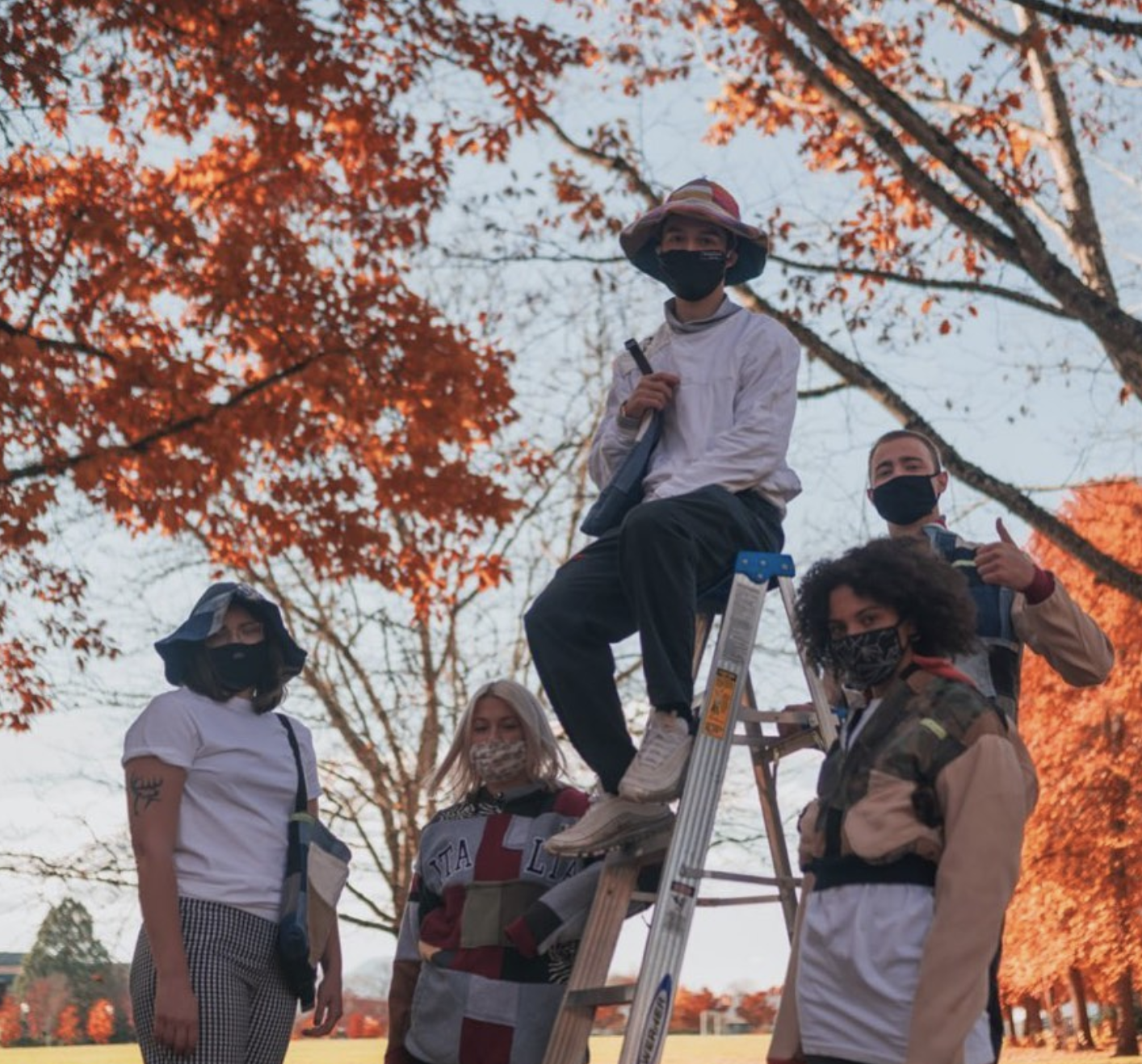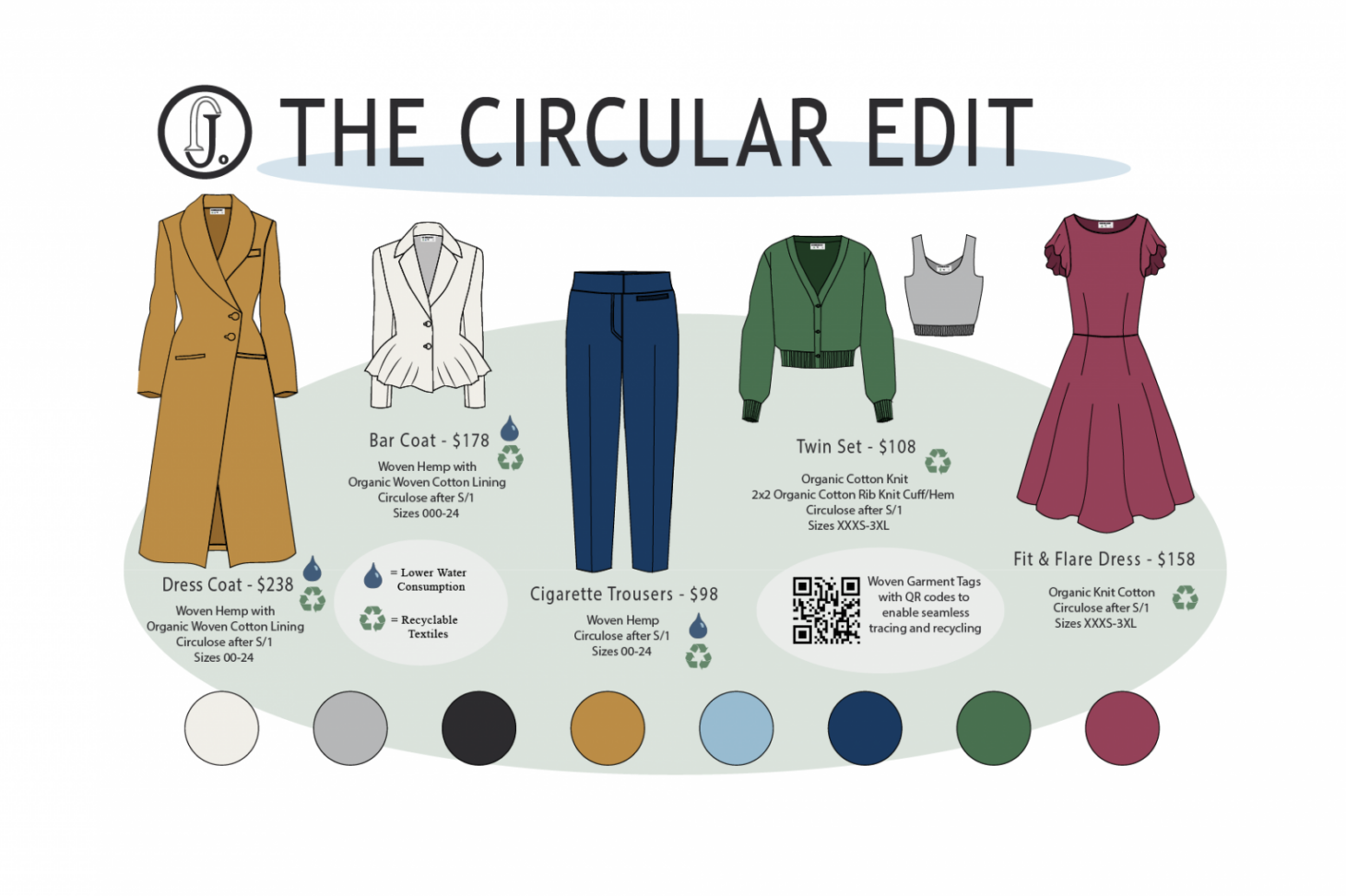News, articles, and interesting stuff from the College of Business

Evietta Chapman and Keaton Springer design 2021 AATCC award-winning fashion line
Evietta Chapman, Class of 2021 Honors Bachelor’s of Science in Merchandising Management and minor in Business and Entrepreneurship, came to OSU with pre-law and political science as a plan for study. Keaton Springer, Class of 2021 Bachelor’s of Science in Apparel Design, came for a focus on a career in fashion.
The two together have hit a groove with fashion design and merchandising management, taking a prestigious national title at the American Association of Textile Chemists and Colorists Merchandising Competition.
Chapman, inspired by honesty, authenticity and innovation to make a better world, wants to apply these ethics to the apparel industry. And Springer is fascinated by fashion that transcends trend, and also nature and the color green.
And thus the seedlings for “The Circular Edit,” their AATCC award-winning fashion line, inspired by silhouettes from the 1950s and catering to young, active and socially conscious women in their 30s who work in a professional setting, are planted.
“We crack this joke a lot: I make the clothes; she sells them.”

“We both love design and are very passionate about sustainability and making the world a better place,” Chapman said. “Keaton is insanely driven and always coming up with new ideas, whereas I think I am more of a perfectionist who likes to take those ideas and refine them. We complement each other in different ways, the only way I could think to explain it is that we understand implicitly when to push another forward and when it’s just important to provide support. I hold Keaton to my standards and he does the same for me, and from that we are able to bring out the best in each other when we work together,” Chapman said.
The skills and complementing strengths displayed in this design team is signature to the College of Business with its multidisciplinary approach and close interaction between merchandising management and apparel design programs. This formula brings strong talented students to college, and brings out the best in them.
“We crack this joke a lot: I make the clothes; she sells them,” Springer said. “But it’s much more than that. Both of us are naturally interested in the fashion world and keeping up with startups, trends, brands and all that fun stuff. So we both were informed on the topics we wanted to cover and include. Once we had our topic and researched the inspiration, we began working on what we were best at: Evietta taking the reins on the merchandising concept while I focused on the design and theme.”
Apparel industry must address sustainability
A common thread between Chapman and Springer is the importance of sustainability in the apparel industry. They focused their fashion line on the industry principle of “circular design” – designing around waste and pollution, replenishing resources, keeping products and materials in use by reusing and recycling.
Sustainability and circular design – as principles and ideals – are becoming much more than theoretical to young designers and the industry writ large
“So what is actually really cool about this line is that it is possible right now,” Chapman said. “There really is fiber made from recycled cottons, and Levi’s Jeans are actually starting to use them. The status quo of the industry is heavily reliant on creating waste, not recycling. But that’s changing.”
Fun fact: The apparel industry is the second largest polluter in the world, runner-up to oil and gas.
As sustainability has become more of a concern to consumers, she points out, brands are indeed shifting towards implementing recycling programs. However, the process is slow. Chapman’s Honors thesis focused on designing clothing for longevity, so she and Springer had a strong foundation – and a lot of fun – brainstorming for the AATCC competition.
The AATCC title includes a monetary award as well as an apprenticeship with competition sponsor (and another major brand looking for sustainability in design), J. Crew.
“For the most part, we were able to take a blank canvas, and make what we wanted with it. After winning this competition, along with the compensation, we have a fantastic piece for our résumé and portfolio,” Springer said.
“Be unapologetically yourself”

Before they dig into that J. Crew apprenticeship, Springer and Chapman both plan to take a ‘blank canvas’ approach to the summer, traveling through the United States, through major cities and nature sites with an eye toward international destinations and fashion hot-spots once their careers are more established.
And besides, the industry, frankly, has to catch up with them.
“Sustainability has demonstrated that we need to set up a system in order to not collapse a whole industry – if say another pandemic were to shut everything down again,” Springer said. “Sustainability will be adapted into the industry as a standard; brands will adapt, and then consumers can go back to getting the lowest price.”
The designers say the apparel industry had a whole lot more going on during Covid beyond that sudden and extreme demand for athleisure wear. Points of sale were shut down, supply chains and production interrupted, but at the same time, accelerations and rollouts of other retail concepts picked up steam.
“There is so much that is coming to the industry because of Covid,” Springer said. “There’s been a surge in ecommerce and also omnichannel development to create unique shopping experiences. On top of that, there’s a lot of technology and effort being spent in product development. With so much to accomplish with regards to sustainability, it’s exciting to see how far the fashion industry will adapt and grow.”
Chapman, with an eye on trends, says that people should want to have more fun with their clothing as the world reopens. But she also sees something else:
“Covid opened a unique opportunity in that it created an openness towards different trends and styles, as well as an attitude with younger consumers to rely less on what is the status quo and instead be unapologetically yourself.”

